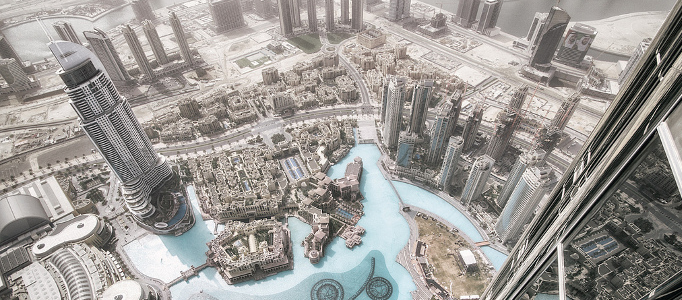Petrol prices are going down affecting the Energy sector worldwide. The potential impact of the market downturn is a hot topic in the MENA region, where the Oil & Gas segment constitutes a significant portion of its GDP. Rather than a growth threat, the oil price drop is however often seen as a stimulus for enhancement of the non-oil sector, which is expected to generate new investment opportunities and stable growth.
The Petrol Price Crisis
The price of the Brent Crude Oil, which serves as a major benchmark in the sector, has fallen by more than 30% over the last 6 months down to $78 per barrel, reaching its lowest for the last 4 years.
The drop in prices is explained by the growing supply from US shale oil combined with a decrease in demand due to economy stagnation in Europe and slowdown in China. The trend is expected to continue and lead to deeper price collapses.
Oil companies are reacting by cutting down capital expenses to overcome shortages in the income flow. The global industry is suffering from delayed projects and reduced investments. Investors fear dividend cut-offs as a possible measure for overcoming deficits. Dividends in the Energy sector are however still among the highest since the beginning of the financial crisis.
There is a wide controversy regarding the impacts of the oil price crisis for the MENA region in particular. On the one hand tabloid headlines warn about job losses and economy setback. Optimists on the other hand insist that the crisis will affect shale gas, heavy oil and deep water projects in other parts of the world, whereas the low costs of production in the MENA region and its ample cash reserves will enable the Middle East offshore upstream market maintain its healthy position.
What the crisis has made clear to everyone is the fact that the oil dependency of MENA’s economy is risky in the long run, and fostering the growth of non-oil sectors is the right direction to follow.
Economy Restructuring and Deregulation
To promote the development of other sectors MENA governments should provide openness of financial markets and greater flexibility of private firms and investors. The shift towards a more open and diversified economy has already started.
In 2014 Saudi Arabia permitted foreign investors to perform swap agreements on Tadawul, the Saudi Arabian stock exchange. This gives investors the freedom to stock pick and reap the direct economic benefit of their investments. So far, they were allowed to trade on the bourse only indirectly, through mutual funds. The next step would be to fully open the stock exchange to foreign direct investments, a plan already officially approved by government authorities. This reform is expected to enhance MENA’s overall visibility among global investors and attract additional investment flows.
At the same time a series of regulatory changes that would ease foreign investors and local entrepreneurship are initiated in UAE, including a new SME, Companies, and Investment Laws.
The new Law on Small and Medium sized enterprises was issued in November 2014 to increase the attractiveness and competitiveness of the sector. The law lays the ground for a more effective National Programme for SMEs and coordination among key stakeholders. As part of this programme an agreement has been made between the SME Council and Emirates Development Bank that obligates the latter to provide minimum 10% of its total annual financing facilities to SMEs participating in the programme.
The changes in the Companies Law are still in process. They aim at simplifying the management of Limited Liability and Joint Stock companies and making them an attractive choice for investors. They also call for greater transparency and accountability. One possible instrument for the latter is to oblige companies make their documentation publicly available.
A new version of the UAE Investment Law is expected by the end of 2014. The main changes refer to making non-oil sectors, particularly Tourism, Real Estate and Financial Services more favourable to investors. According to Sultan Al Mansouri, UAE Minister of Economy, these changes will boost the country’s GDP by 3-4%. Overall, the UAE expects to attract $11.9 billion in FDI into its non-oil sector in 2014, 20 percent more than last year.
Image courtesy: mx2.de, 2012, Flickr CC.

Comments
blog comments powered by Disqus